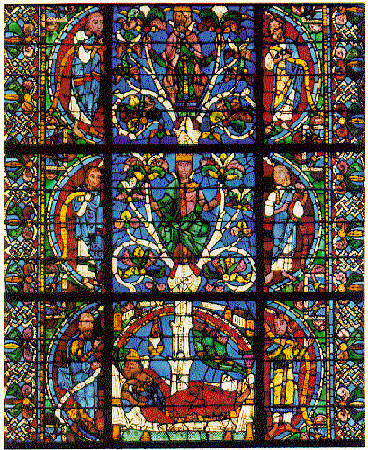While parents have this as their primary obligation, every one of us – whether parents or grandparents, aunts, uncles, godparents, clergy, teachers, friends – has the responsibility of assisting in the solid Catholic upbringing of children. Christ Himself has given us this responsibility as members of His Body.
Children need to be developed in virtue; they need to be formed in character. And as our children learn the virtues, so our families – and the Church – will be strengthened and will be that leaven which will help our society come to know God as He has revealed Himself to us.
How do children learn these things?
First, through the examples they see around them. What children witness in the lives of parents and grandparents, and in the other adults whom they admire, they will tend to imitate.
Second, by repeated practice. We need to remind our children constantly to do the right thing, to the point that they know they can do the right thing because they have become accustomed to doing it.
And finally, by word; that is, by what they hear coming from our own lips, and having those words match the actions they see in our lives.
We do our children no favour when we allow them to control us; rather, we have an obligation to assert a godly control over them, guiding them and correcting them and forming them in the image of Christ.
Let this Feast of the Holy Family be a reminder to us of our responsibility to exhibit a solid, holy Catholic life. We must impart good habits of mind, will, and heart to our children, and to do it through hard work and sacrifice each day, setting an example for them of what a Catholic life can be, when it is well lived.
With God's assistance and with our own dedicated and sacrificial work, we can help our children to grow into great men and women, and that will lay the foundation for every family to become more like the Holy Family.
May the grace of our Lord Jesus Christ, and the prayers of the Blessed Mother and of St. Joseph, help us to do this.
O Lord Jesus Christ, who by thy wondrous holiness didst adorn a human home, and by thy subjection to Mary and Joseph didst consecrate the order of earthly families: grant that we, being enlightened by the example of their life with thee in thy Holy Family, and assisted by their prayers, may at last be joined with them in thine eternal fellowship; who livest and reignest with the Father, in the unity of the Holy Spirit, ever one God, world without end. Amen.
--------------------------------------------------------
Away in a manger, no crib for his bed,
the little Lord Jesus laid down his sweet head.
The stars in the bright sky looked down where he lay,
the little Lord Jesus asleep on the hay.
Dear Mary, his Mother, sang sweet lullabies,
as Jesus, awaking, gazed into her eyes.
The most holy Virgin, with loving caress
embraced the world’s Saviour with Love’s tenderness.
Good Joseph stood guarding the Mother and Child,
his soul filled with awe and his heart undefiled.
The birth of young Jesus made angels to sing,
but Joseph in silence kept watch o’er his King.
What once was a stable may our hearts become;
may God’s holy fam’ly in us find a home.
With Mary and Joseph and angels above
we worship the Infant, the gift of God’s Love.
the little Lord Jesus laid down his sweet head.
The stars in the bright sky looked down where he lay,
the little Lord Jesus asleep on the hay.
Dear Mary, his Mother, sang sweet lullabies,
as Jesus, awaking, gazed into her eyes.
The most holy Virgin, with loving caress
embraced the world’s Saviour with Love’s tenderness.
Good Joseph stood guarding the Mother and Child,
his soul filled with awe and his heart undefiled.
The birth of young Jesus made angels to sing,
but Joseph in silence kept watch o’er his King.
What once was a stable may our hearts become;
may God’s holy fam’ly in us find a home.
With Mary and Joseph and angels above
we worship the Infant, the gift of God’s Love.
Text: V.1, Traditional
Vv. 2-4, Fr. Christopher G. Phillips, 1995
Music: Cradle Song, William James Kirkpatrick, (1838-1921)














